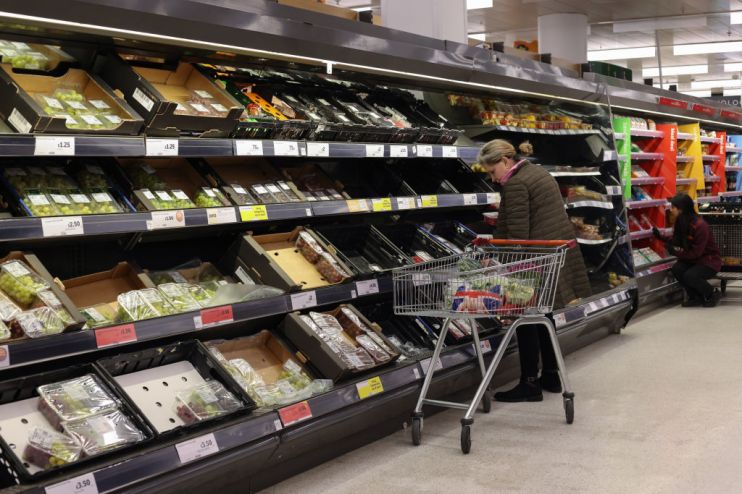UK inflation to accelerate to highest rate since March 1992

Inflation in the UK will soar to its highest level since March 1992, intensifying an already tight cost of living squeeze that is hitting households, according to City experts.
Accelerating food and energy prices stoked by Russia’s invasion of Ukraine will propel inflation higher, fresh estimates released by the Office for National Statistics (ONS) on Wednesday will reveal.
Most experts think the cost of living will hit 6.7 per cent in March, up from 6.2 per cent in the previous month.
The new data will be uncomfortable reading for the Bank of England, which has a mandate to keep inflation at two per cent over the long-term, and will likely reinforce calls for it to plough ahead with interest rate hikes.
The Bank has already lifted rates at the last three meetings, taking them to pre-pandemic levels of 0.75 per cent.
Threadneedle Street has been accused by former rate setters of being slow to respond to inflation that started taking off in the second half of last year.
Economists at JP Morgan and Bank of America are pencilling in a further four rate hikes this year.
New stateside inflation data is published tomorrow and is forecast to come in hot and far above the US Federal Reserve’s two per cent target.
Economists at consultancy Pantheon Macroeconomics expect US inflation to climb from an already four decade high of 7.9 per cent to 8.4 per cent, mainly driven by rents soaring as a result of higher house prices.
Fed chair Jerome Powell and co sent the strongest signal yet to markets last week that it will push through the quickest monetary policy tightening cycle in recent history this year.
In minutes from its last meeting, members of the federal open market committee said they are actively considering raising borrowing costs 50 basis points more than once this year.
The Fed typically hikes rates in 25 basis point increments.
The central bank will likely begin running assets off its balance sheet next month, contributing to tightening financial conditions.
Hawkish rhetoric from the world’s top central banks has sent yields on UK and US government debt higher.
The European Central Bank is expected to keep rates in negative territory when it announces its decision on rates on Thursday despite prices rising at the fastest rate since the euro was created in 1999.